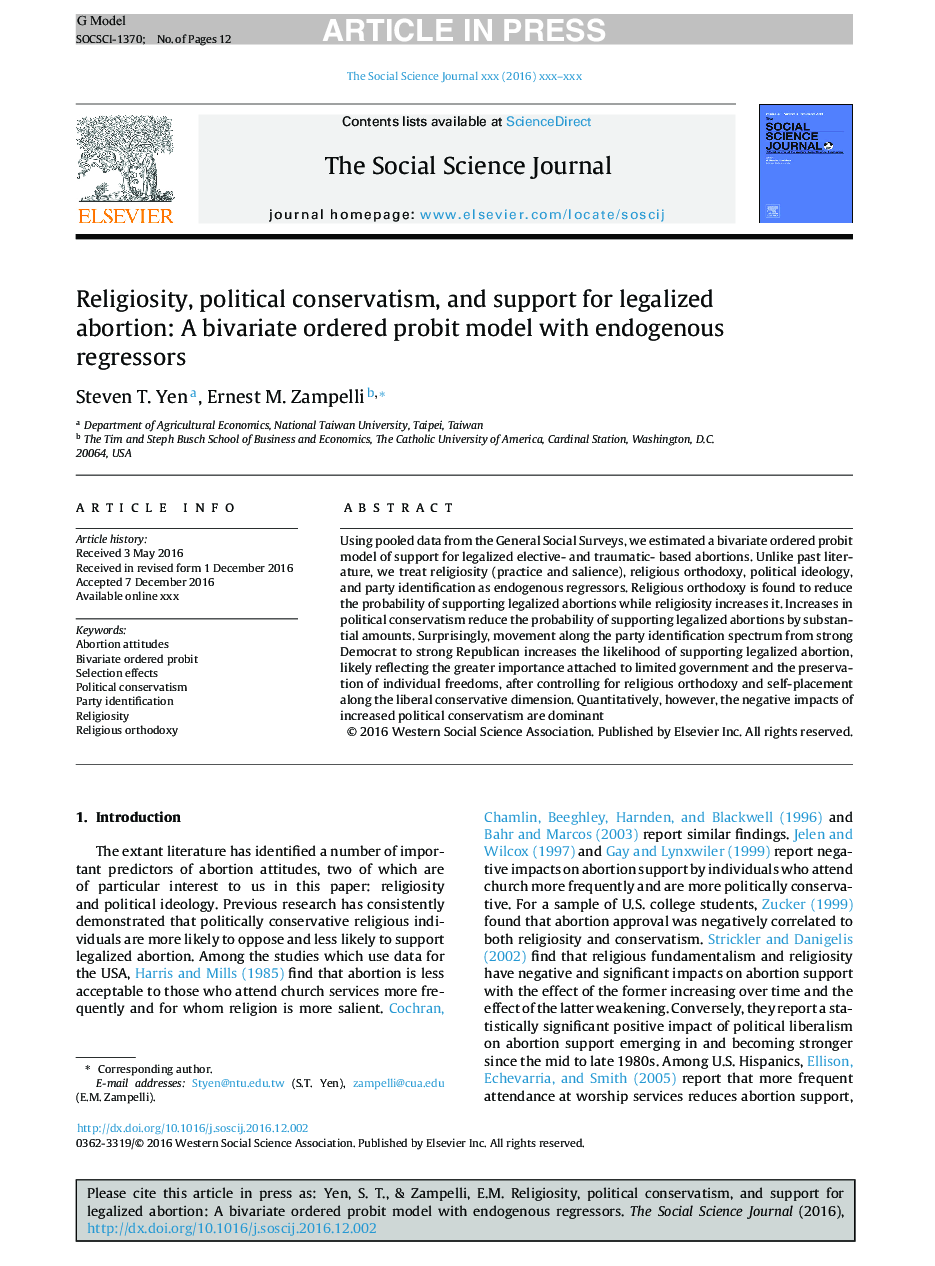| Article ID | Journal | Published Year | Pages | File Type |
|---|---|---|---|---|
| 4761987 | The Social Science Journal | 2017 | 12 Pages |
Abstract
Using pooled data from the General Social Surveys, we estimated a bivariate ordered probit model of support for legalized elective- and traumatic- based abortions. Unlike past literature, we treat religiosity (practice and salience), religious orthodoxy, political ideology, and party identification as endogenous regressors. Religious orthodoxy is found to reduce the probability of supporting legalized abortions while religiosity increases it. Increases in political conservatism reduce the probability of supporting legalized abortions by substantial amounts. Surprisingly, movement along the party identification spectrum from strong Democrat to strong Republican increases the likelihood of supporting legalized abortion, likely reflecting the greater importance attached to limited government and the preservation of individual freedoms, after controlling for religious orthodoxy and self-placement along the liberal conservative dimension. Quantitatively, however, the negative impacts of increased political conservatism are dominant
Keywords
Related Topics
Social Sciences and Humanities
Psychology
Social Psychology
Authors
Steven T. Yen, Ernest M. Zampelli,
